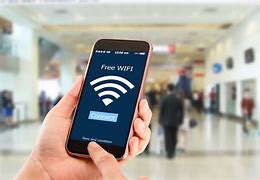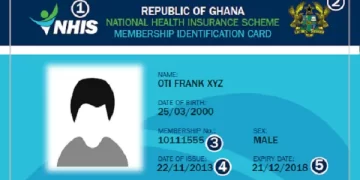Everybody has experienced it: sitting in a hotel lobby, enjoying a meal with a friend, or seeing “Free WiFi Available.” It’s true that temptation exists, am I correct? Who doesn’t enjoy saving mobile data, after all? However, before you click “Connect,” be aware that public WiFi isn’t always free and can be a haven for hackers.
Here are some reasons why you should reconsider using free WiFi in Ghana (or anyplace else in the world) on your laptop or phone.
- Hackers Can Steal Your Personal Data
Public WiFi is often unsecured, meaning hackers can easily intercept your online activity. If you log into social media, check your bank account, or enter passwords, cybercriminals can steal your login details without you even knowing.

Ever heard of “man-in-the-middle” attacks? This is when hackers position themselves between your device and the internet, monitoring everything you do. Imagine sending mobile money, only for someone to capture your details—scary, right?
- Your Device Can Be Infected with Malware
Hackers use public WiFi to infect your device with malware and viruses, and as soon as you connect, your laptop or phone may be infected with ransomware or spyware, compromising your private data, including messages and mobile banking apps. Some malware can even lock your files until you pay a ransom; just think of losing all your documents and photos because you wanted free internet!
- Your Private Conversations Aren’t Private
You’re essentially on loudspeaker for hackers if you use public WiFi. Cybercriminals can monitor your messages, emails, and transactions in real time, and if you’re sending sensitive work emails, checking your online banking, or engaging in important business discussions, you may be opening yourself up to fraud, identity theft, or even blackmail.
ICYMT: Even though Musk’s offer was unsuccessful, can he still harm OpenAI?
- You Might Connect to a Fake WiFi Network
Hackers are able to create phony WiFi hotspots that appear authentic. For instance, XYZ WiFi” at your favorite restaurant can be a ruse created by fraudsters to obtain your personal data.
They can follow anything once you connect, including your Momo transactions, emails, and passwords. Verify the legitimacy of the network with the company before connecting.
- Cybercriminals Can Hijack Your Accounts
Have you ever utilized Gmail, Twitter, or Facebook auto-login? Hackers, however, adore that. They have the ability to take over your session, access your accounts, and begin using them in the same way that you would.
They might read your emails, send phony messages to your friends, or even alter your passwords. Even worse, they may take control your bank app, Netflix, and work email if you use the same password for all of your accounts.
How to Stay Safe When Using Public WiFi
If you absolutely must use free WiFi, here are a few safety tips:
- Use a VPN – A Virtual Private Network (VPN) encrypts your data and makes it harder for hackers to spy on you.
- Avoid logging into sensitive accounts – No banking, no social media, no online shopping.
- Turn off auto-connect – Make sure your phone doesn’t automatically join random WiFi networks.
- Forget the network after use – Don’t let your device remember and reconnect automatically.
- Use mobile data instead – If possible, stick to your personal networks.
Final Thoughts
Despite the fact that public WiFi is free, the risks can cost you much more than just a few gigabytes of data. The risks are genuine, ranging from compromised bank accounts to stolen passwords. Be cautious, be clever, and consider your connection carefully before making it!
After reading this, would you still utilize free WiFi? Leave a comment with your ideas.
SOURCE: PULSE GHANA


























